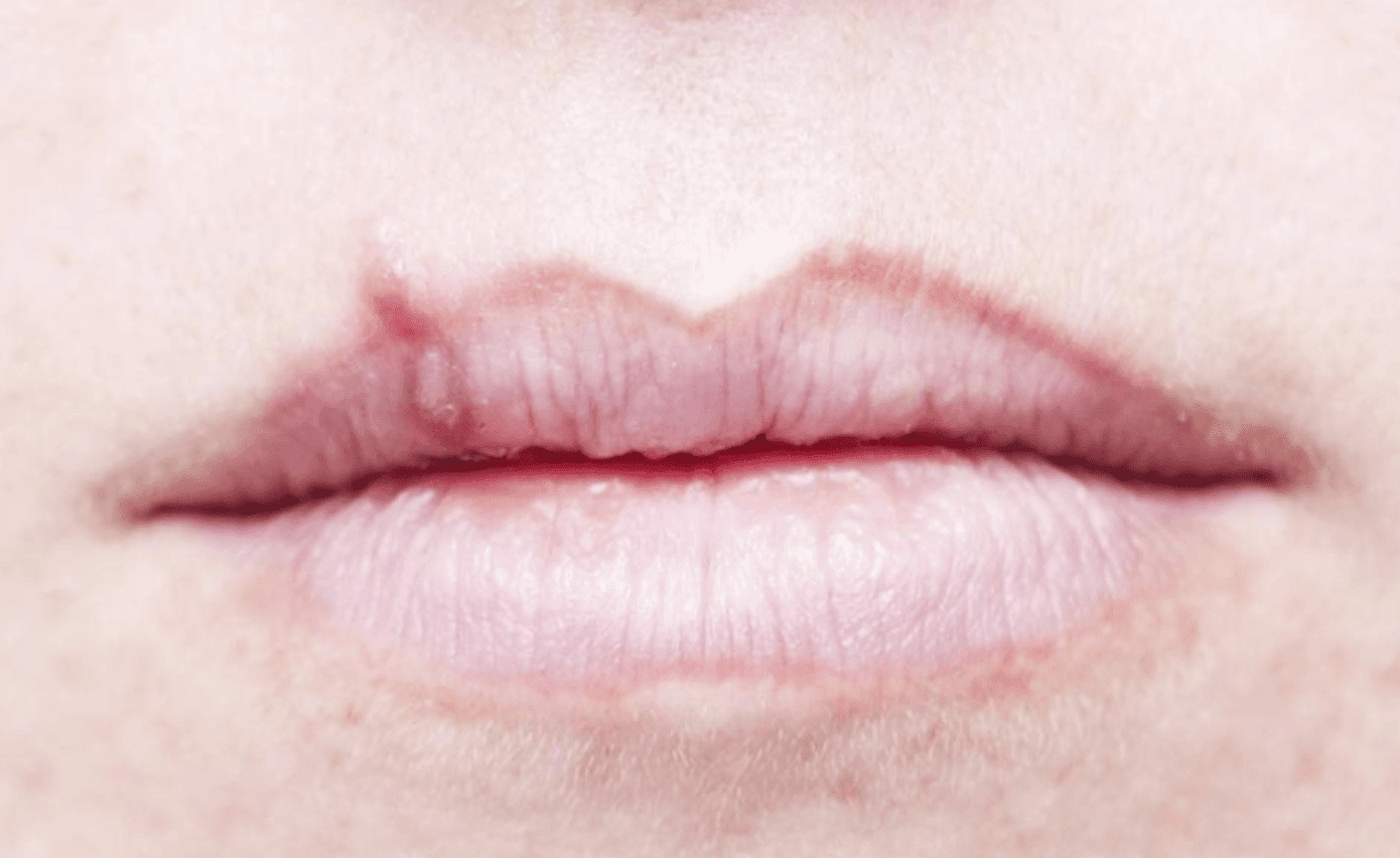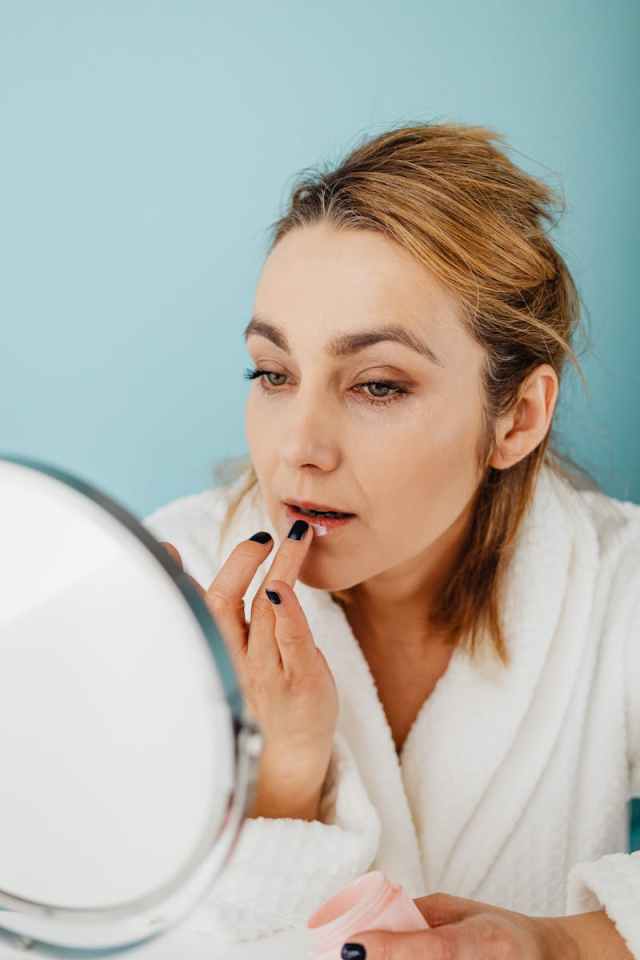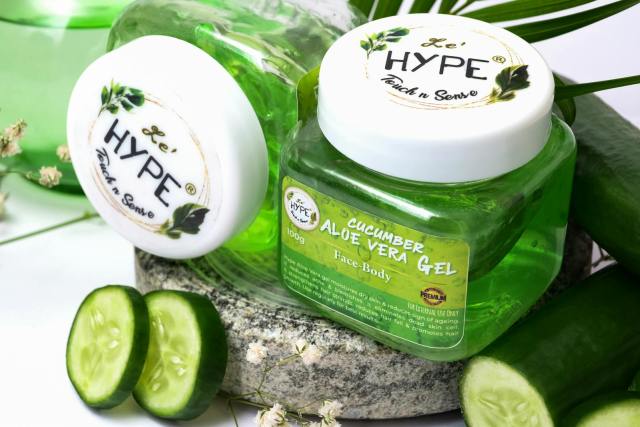
Cold sores are more prevalent than most people know, but with a combination of anxiety, stigma, and confusion. Most are confused and wrongly think that cold sores are caused by other skin conditions, when in fact they are caused by a viral infection which resides in the body after the initial infection. Although they are not usually a serious health issue, the fact that cold sores are chronic and have such an impact on how one feels about themselves and their ability to cope with everyday things makes them something one should learn a lot about. Knowing how they develop, why they happen, and how to get rid of them is necessary for anyone who has them.
The reason for it is herpes simplex virus (HSV), and once it infects the body, it never completely departs. It remains hidden in nerve cells, anticipating the day when it will again emerge. And when it re-emerges, it creates painful blisters on and near the mouth, nose, or lips, sometimes at the most inopportune moment. Due to the ease of transmission of the virus, outbreaks spread rapidly from person to person, making it that much harder to control. With proper information, however, it can be kept in check.
Cold sores are managed by a combination of knowledge, early treatment, and prevention. Awareness of warning signs means that it can be treated easily, while being aware of individual triggers minimizes outbreaks. There are a number of beneficial options available in contemporary medicine, ranging from antiviral medication to calming creams, and there is ongoing research that still holds greater solutions in the future. By examining symptoms, treatments, prevention, and lifestyle, we are able to understand how cold sores can be managed in a manner that ensures health and is comforting to self-confidence.

1. Understanding Cold Sores and the Virus
Cold sores occur in lots of people but are not always well understood. Cold sores are also referred to as fever blisters, and they are caused by the herpes simplex virus (HSV), which is highly contagious. There are two types of the virus HSV-1, which typically causes sores inside the mouth, and HSV-2, which typically causes sores in the genital region but may also be found on the face.
HSV-1 is very easily spread by kissing or sharing a glass, and therefore close contact is the main way infection is passed from one person to another. When the virus enters the body, it is latent in nerve cells and will wait until it is activated. This is the stage where one can have months of no symptoms, only for the virus to reappear at random.
- It is easier to deal with cold sores if one can identify triggers.
- Stress lowers immunity, allowing the virus to resurface.
- Disease, tiredness, and hormonal shifts also play a role.
- Outdoor conditions such as cold wind or excessive sun may trigger attacks.

2. Triggers That Trigger Cold Sores
Knowing triggers is at the center of prevention. Emotional stress overloads the immune system and weakens the body’s natural shields. Physical fatigue or recent illness also weakens the body’s defenses and exposes it to an outbreak.
Hormonal changes, like menstruation, also trigger flare-ups. Environmental conditions are responsible to a significant extent: cold weather dehydrates and dries lips and causes sores, and harsh sunlight or UV light destroys cells and leads to reactivation of the virus.
- Resting properly lowers the occurrence of breakouts.
- Protection of lips against harsh weather lessens exposure.
- Managing stress increases resistance to breakouts.
- Monitoring personal inducers results in long-term control.

3. Earliest recognition of symptoms
Cold sores usually begin with burning or tingling on or around the lips. Soon, small blisters occur, usually filled with fluid. Blisters may break, leaving crusty sores after healing.
The whole healing process is just a few days, even a couple of weeks. Although symptoms are generally bearable, they are not that comfortable and affect confidence during the day. Detection of the signs early has a significant impact on how well you can cope with the outbreak.
- Treatment with antivirals within the first three days is optimal.
- Drugs such as val acyclovir minimize the symptoms and shorten healing time.
- Recurrent episodes can necessitate long-term antiviral prescriptions by a physician.

4. Treatment Options: Creams and Patches
Creams applied topically are immediate relief measures if used at the early stage of a sore. OTC remedies such as docosanol act by preventing the virus from infecting neighboring cells. Hydrocortisone creams act to decrease swelling and redness, and add relief.
Patches are another option for discreet treatment. They protect the sore, shield it from rubbing soreness, and condition the skin so that it will heal quicker. Some of them are thin enough to be used underneath makeup, so they are convenient in everyday life.
- Drugging with antiviral medication within the first three days yields the best outcome.
- Val acyclovir and other medications can reduce the length of an outbreak.
- These medications also reduce the severity of the symptoms.
- Physicians can prescribe ongoing antiviral therapy for individuals with chronic outbreaks.

5. Prevention and Good Hygiene
Prevention is also the key contributor but no permanent solution exists. Avoid known culprits and avoid frequency cases. SPF-containing lip balms, for instance, protect against sunburn sores, and a healthy lifestyle prevents stress attacks.
Proper hygiene is also required. Wash your hands to prevent the virus from spreading to other individuals. Do not touch your sore directly, and do not share things such as towels, forks or knives, or lip balms. The virus may still be transmitted even though tingling occurs in early stages prior to the blisters developing.
- Good hygiene keeps you protected from cold sore development.
- It also lowers the risk of passing on the virus to other individuals.
- The herpes virus is quite easily spread by direct contact.
- Take note of this ease of transfer in order not to have a breakout.

6. When Cold Sores Can Be Serious
Cold sores are of no threat to most individuals, but a nuisance. Complications do occur, however, most significantly for those with compromised immune systems. The virus can spread further in other parts of the body in such instances.
Rare but serious are complications of cold sores including encephalitis (inflammation of the brain) and newborn babies with complications if infected. These are the reasons that you need medical care if you are experiencing recurrent or severe outbreaks.
- Uncommon are cold sore complications, yet they can happen.
- Risk knowledge makes it easier to notice changes early.
- Early medical care reduces the risk of serious complications.
- Staying on one’s toes and vigilant is important in maintaining one’s health.
7. Research and Association with Other Health Conditions
Recent research is investigating whether HSV-1 might have an association with memory loss or dementia. Researchers are convinced that the virus can affect the brain by inducing inflammation, although the evidence isn’t yet conclusive.
This possible association has attracted HSV-1 to the focus of more medical studies. Learning about the way the virus functions on the nervous system could lead to possible treatment.
- The relationship between some of these causes and cold sores is not understood.
- Being current puts you in the know about new studies.
- Knowledge enables you to modify your management plans accordingly.
- Pro activeness promotes improved long-term control of cold sores.
8. Antiviral Medicines
Oral antiviral medications are among the best treatment options. Acyclovir and val acyclovir, for example, are medications that prevent the virus from spreading inside cells. Best results occur when the drugs are taken when an attack starts, best within the first three days.
For individuals who experience frequent outbreaks, daily medication with antiviral medication can decrease the frequency of sores. The preventive therapy can greatly enhance the quality of life.
- Doctors determine whether long-term antiviral therapy is appropriate.
- Treatment is tailored.
- The regimen optimizes benefit and avoids risk.
- Consultation by a professional makes recurrent outbreak management safe.

9. Relief of Pain and Care for Comfort
Cold sores hurt, but numbing agents relieve the discomfort. Camphor or phenol gels temporarily numb the sore, reducing pain. Aloe vera is also kind to the skin and keeps it from cracking when the sore heals.
Lip moisturizing lessens irritation and fosters healing blisters with no extra trauma. Even simple measures such as cold compresses can diminish pain and swelling.
- Relief measures augment physician treatment of cold sores.
- Combination therapy accelerates healing.
- Recurrent attacks become more manageable.
- These measures reduce anxiety with recurrent sores.
10. Lifestyle Changes and Future Research
Lifestyle modification is part of the treatment of cold sores. Sun avoidance on the lips, proper diet, and stress management all reduce the frequency of outbreaks. Being aware of your own triggers makes prevention even more effective.
Scientists are even looking into future treatments like vaccines. Encouraging research on mRNA vaccines sees the day when outbreaks become preventable or much milder. There are no such vaccines accessible to the public yet.
- The most important way of dealing with cold sores is awareness, prevention, and regular treatment.
- Knowledge keeps one on the right track.
- The medical sciences of the future hold the secret to better treatments.
- Best practice nowadays is centered on outbreak and symptom prevention.
Final Thoughts
Cold sores are not lethal but can interfere with day-to-day living and reduce self-esteem. Effective management comes from early recognition of the symptoms, proper treatments, and prevention.
Even though there is no cure as of now, treatments and lifestyles now are utilized to maintain outbreaks in check. Remaining up to date with current findings allows you to adjust your strategy and be ready. Cold sores are easily controlled so individuals can live in comfort without the virus ruling their life.







